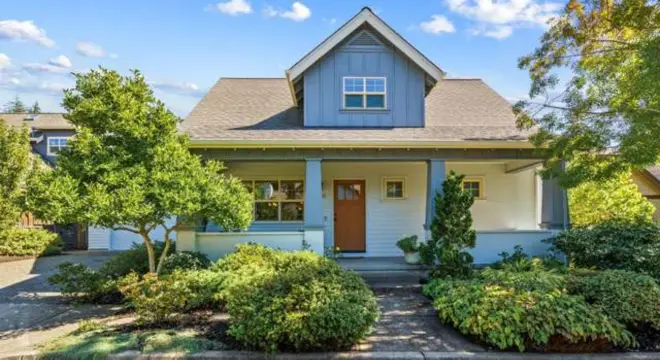How to Negotiate House Price and Closing Costs With Confidence?
If you’ve been house hunting the past few years, you probably felt like homes were flying off the market before you even had a chance to schedule a tour. That “seller’s market” left buyers frustrated, often competing with ten offers on the same property. I’ve spoken to people who wrote offer after offer—only to get outbid every single time.
But the tide is starting to turn. According to Realtor.com, housing inventory has now grown for 19 straight months as of May 2025, and new listings are popping up across every major region. What does that mean for you? Simply put: you have more room to breathe—and more room to negotiate.
Nadia Evangelou, senior economist at the National Association of REALTORS, put it clearly: “There is more room for negotiation now than there was a year or two ago.” That’s a big shift. Sellers who once had the upper hand are realizing they may need to compromise to close a deal.
Here’s where most guides on “how to negotiate home price” fall short: they don’t connect negotiation tactics to the current market climate. You’re not just haggling for a discount—you’re stepping into a housing market that’s finally giving buyers some leverage back. Ignoring that context means missing your best opportunities.
So, if you’ve been sitting on the sidelines, discouraged by all the bidding wars, this is your moment to re-enter with confidence. Negotiation is no longer just a formality—it’s a tool that can save you thousands if you know how to use it.
Let me ask you: given this shift in power, what’s the very first thing you’d want to negotiate on if you found the right house tomorrow—price, repairs, or maybe closing costs?
Preparing Yourself Before the First Offer

Get Financially Battle-Ready
- Mortgage pre-approval matters. A seller who sees a pre-approval letter—or proof of cash—takes you seriously.
- House Logic advice: House Logic says that one of the smartest negotiation moves is showing you’re financially ready from the start. It builds trust, not just numbers.
- Set your ceiling. Decide the max you’ll pay. Don’t let emotions push you higher once you fall in love with a home.
While you’re arranging financing and budgeting for closing costs, don’t forget to consider insurance. If you’re unsure about requirements or options, our guide on home insurance essentials can help you navigate the choices.
Choose the Right Real Estate Agent
- NAR data: typical agent handles 10–12 transactions a year. That experience can tip the scale in negotiations.
- Referrals dominate—40% of buyers choose agents recommended by friends or family.
- Vet your agent: check reviews, video testimonials, past deals.
- Share your financial truth (cash flow, repair budget). The more your agent knows, the stronger they can negotiate on your behalf.
Before making an offer, it helps to attend open houses strategically—you can spot potential deal-breakers and see how properties compare in real time. Check out our guide on open house etiquette to make the most of your visits.
Ask yourself: If you had to pick one quality in an agent—experience, network, or negotiation skills—what would you value most?
Negotiating Beyond Price: 8 Hidden Levers
1. Closing Date Flexibility
Letting a seller stay after closing (e.g., 45 days) can win you the deal—even if your offer is lower.
2. Financing Type
Conventional loans often look safer to sellers than FHA/VA. If you qualify, it could give your offer an edge.
3. Cash vs Mortgage
Cash wins because it’s fast and certain. If you’re financing, highlight your strong pre-approval and short timeline.
4. Closing Costs
- Typical range: 2–5% of purchase price.
- Options: ask seller to cover, roll into mortgage, or pay yourself to look stronger.
- Tip: Talk to your loan officer before making this move—appraisal and monthly payments matter.
5. Earnest Money Deposit
- Usually 1–3% of sale price.
- Larger deposits = more seller confidence that you’ll close.
6. Inspections
- Never skip critical checks (roof, septic, termite).
- A balanced approach: waive minor cosmetic issues, but keep major inspections intact.
7. Buyer’s Agent Compensation (2025 Rule)
- Must sign a written agreement before touring.
- Compensation can come from fixed fee, seller concessions, or broker split.
- Understand this early—it affects your net cost.
8. Home Warranty
- Average cost: ~$1,049/year.
- Asking seller to provide one can protect you against early repair surprises.
Ask yourself: Out of these levers, which one would you pull first if you wanted to make your offer stand out?
For quick daily tips and negotiation hacks while house hunting, many readers find it useful to stay updated through a messaging channel where small insights and reminders are shared directly.
Legal Protections Every Buyer Should Know

Contingencies = Your Safety Net
- Inspection contingency: Walk away or renegotiate if big issues appear.
- Appraisal contingency: Protects you if home value comes in lower than offer.
- Financing contingency: Lets you back out if your loan falls through.
Attorney Review Clauses
- Example: In New York, contracts have a 3-day attorney review window.
- During this time, you can walk away without penalty if something doesn’t sit right.
Contract Red Flags
- Spell out everything in writing: appliances, fixtures, repairs.
- Don’t assume—if it’s not in the contract, it’s not guaranteed.
To complement this game plan, make sure you also follow the 5 smart dos and don’ts for homebuyers in 2025—it covers practical tips that can save time, money, and stress during your buying journey.
Key takeaway: Negotiating price is only half the job. Protecting yourself legally ensures you don’t inherit expensive problems later.
The Psychology of Negotiation
I’ve seen buyers walk into negotiations thinking it’s only about the price tag. But here’s the truth: sellers are people first. Many of them have memories, emotions, even pride tied to their homes. If you ignore that, you miss half the battle.
Sometimes, a heartfelt note about why you love the place can shift the conversation. Other times, it’s about showing patience. Silence, for instance, is underrated. When you make your offer and stop talking, you’re letting the seller sit with it—no pressure, no neediness.
And here’s my golden rule: always know when to walk away. The buyer with the courage to step back usually ends up in control. If you set your ceiling before the game starts, you won’t let emotions push you beyond what’s smart.
I’d love to hear from you—when negotiating a home, which lever do you rely on most: price, closing costs, or the psychology of the seller? Share your thoughts in the comments below!
Common Mistakes That Kill Negotiations
If I had to sum it up, most failed deals come down to ego or impatience. Buyers either lowball too aggressively, or they get so attached to one house that they lose their leverage.
Skipping inspections is another blunder I see far too often. It may win you the contract, but it can also bury you under surprise repair bills. I always tell first-timers: you don’t skip health checkups just because you’re young, so why skip a home’s checkup?
And don’t forget the data. Comps—recent sales in the same neighborhood—are your anchor. Go in blind, and you’ll either overpay or scare the seller away with an unrealistic offer.
Your Smart Buyer’s Game Plan

When you’re in the middle of negotiations, it’s easy to lose track. Here’s a simple roadmap I always recommend keeping handy:
- Get your numbers straight – Mortgage pre-approval, down payment, and a ceiling price you won’t cross.
- Pick your negotiator wisely – A skilled agent can save you more money than you imagine.
- Look beyond the sticker price – Closing costs, timelines, and contingencies often matter more than the number itself.
- Stand firm on inspections – Cosmetic issues can slide, but don’t skip structural checks.
- Protect yourself legally – Every agreement should include the right contingencies and, where possible, an attorney review clause.
- Keep your emotions in check – Love the house, but don’t let it control your decision-making.
Think of this as your “negotiation compass.” Whenever you feel lost, come back to it.
Final Word
If there’s one thing I’ve learned in 20+ years of watching deals happen, it’s this: the best negotiators aren’t the loudest or the toughest. They’re the ones who stay calm, know their limits, and respect the other side while protecting their own interests.
The housing market will always shift—sometimes it favors sellers, sometimes buyers. But if you master these negotiation basics, you’ll never feel powerless. You’ll walk into every conversation with clarity, confidence, and a real plan.
So let me ask you: if you were putting in an offer tomorrow, which part of negotiation would you focus on first—the price, the terms, or the psychology?
Want more tips on buying smart in 2025? Check out our Home Buying section for in-depth guides and expert advice.
Disclaimer: This article is for informational purposes only and should not be taken as legal or financial advice. Real estate laws and market conditions vary by location, so always consult a licensed agent, attorney, or financial professional before making decisions. Your situation may require personalized guidance.


